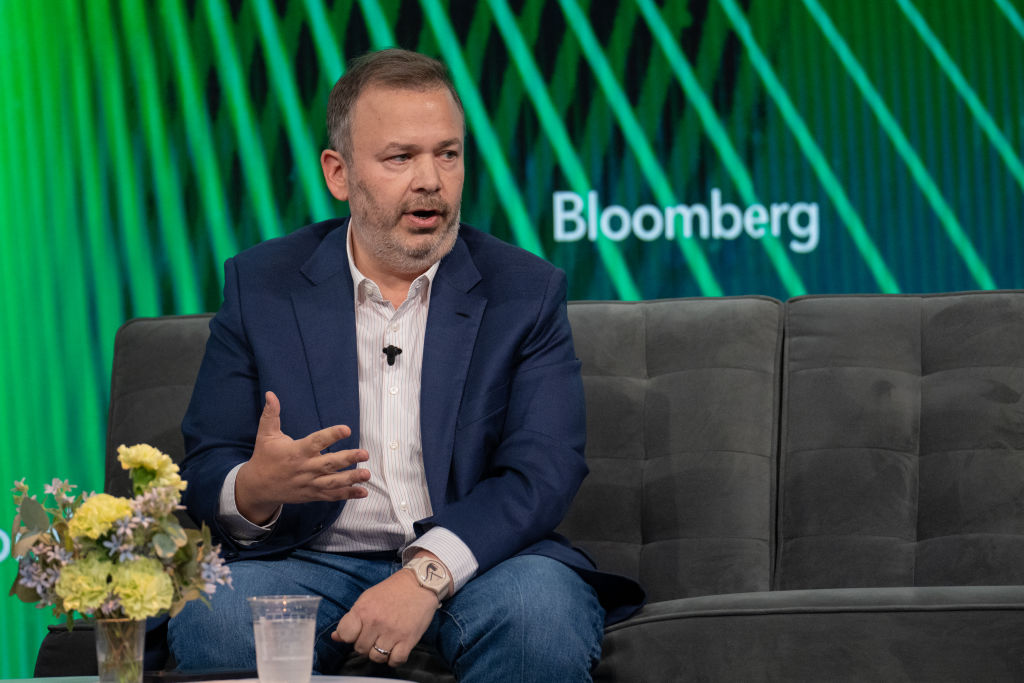Beware of the China frenzy
China's growth has been phenomenal, and investors have been piling in. But the figures might be too good to be true, says Merryn Somerset Webb. So be careful where you put your money.

Get the latest financial news, insights and expert analysis from our award-winning MoneyWeek team, to help you understand what really matters when it comes to your finances.
You are now subscribed
Your newsletter sign-up was successful
Want to add more newsletters?

Twice daily
MoneyWeek
Get the latest financial news, insights and expert analysis from our award-winning MoneyWeek team, to help you understand what really matters when it comes to your finances.

Four times a week
Look After My Bills
Sign up to our free money-saving newsletter, filled with the latest news and expert advice to help you find the best tips and deals for managing your bills. Start saving today!
Where should your money be going at the moment? The answer appears to be obvious to most. China. Only this week, its National Bureau of Statistics announced that the economy grew a fabulous 7.9% in the second quarter. That's a stunning leap from the impressive 6.1% in the first quarter and means that China is on its way to hit its target of 8% GDP growth for the full year.
Better still, the numbers show industrial production up 10.7% and retail sales up 15%. What this shows, say China fans, is that the country is on a path of sustainable growth, justifying the 70% odd rise in the stock market so far this year.
China, as one fund manager put it this week, "has a firm hand on the tiller with regards to maintaining economic growth" and a market that still offers "opportunities for strong returns".
MoneyWeek
Subscribe to MoneyWeek today and get your first six magazine issues absolutely FREE

Sign up to Money Morning
Don't miss the latest investment and personal finances news, market analysis, plus money-saving tips with our free twice-daily newsletter
Don't miss the latest investment and personal finances news, market analysis, plus money-saving tips with our free twice-daily newsletter
But there are problems with all this merriment. It is by no means certain that the growth as reported by the statistics bureau exists in its entirety (8% is a politically important target that everyone feeding numbers into the final calculation is presumably pretty keen not to miss).
Nor is it certain that it is sustainable. Much of it is down to government stimulus massive spending on airports and other infrastructure projects, which don't necessarily spur domestic consumption (as the Japanese, fiscally broken by their own decade of binge bridge building will attest).
It also reflects a huge rise in credit (up yuan 7,300bn in the first half) as the stimulus-charged state-owned banks have poured money into anything going hence the rise in retail sales and the booming housing, car and stock markets.
Nationally, residential property sales rose more than 25% in the first half of the year while car sales rose 47% year on year in May. You could call this good news or, with an eye on the disasters around the world over the past few years, you could call it the beginning of a credit bubble bad news.
"The basis of the rebound of the people's economy is not stable," says Li Xiaochao, spokesman for the Bureau National Statistics. Quite.
Still, credit bubbles aside, the fact remains that real medium-term growth in China is absolutely dependent on the West.
The bulls are keen to point out that Chinese exports to the US account for only 7% of its GDP. That sounds fine until you note that exports as a whole account for 38% of GDP. Sure, 31% isn't going directly to the US but add in Europe and 15% is going to the west while much of the rest is presumably going to other countries that are US-consumer dependent too: Hong Kong's exports to the US come in at more than 20% of GDP and Taiwan's at 9%.
And wherever those exports go or don't go, they are still falling, down 21.4% year-on-year in June. Note too that in Japan, a mere 15% of GDP is down to exports that's 23 percentage points less than in China. Yet, you only have to draw breath to dis the green shoots theory and the Japanese market collapses.
The fact is that in a globalised world, decoupling of the kind that the bulls wish for Asia isn't really possible: China can build as many infrastructure projects as it likes but as long as it remains a globally-focused economy geared to manufacturing, it can't grow at 8% a year if the rest of us are mired in recession. Which, with our green shoots looking more wilted every day, we are.
House prices are still going down in the US as is industrial production, while unemployment and the savings ratio are going up.
At the same time, the looming bankruptcy of CIT, the New York-based lender, should be a reminder that the banking crisis is far from over. Unless that changes, Chinese GDP growth has to slow: the government's stimulus package and the endless supply of cheap liquidity can surely only postpone the inevitable.
But even if none of this were the case even if China was just kicking off an 8%-a-year-forever sustainable recovery I'd still be extremely wary of its stock market. Average p/es now knock around 33 times. That's not cheap given the risks, and the steepening uptrend of the index rather suggests there will be a market correction sooner rather than later.
Look at any chart of China and you should see that the good news is already in the price. And as John Kay points out in his recent book, The Long and the Short of It, there is rarely much money to be made buying into a story that is already in the price.
This article was first published in the Financial Times.
Get the latest financial news, insights and expert analysis from our award-winning MoneyWeek team, to help you understand what really matters when it comes to your finances.

-
 The ‘mirror will’ flaw which could mean your savings end up with strangers – how to protect your legacy
The ‘mirror will’ flaw which could mean your savings end up with strangers – how to protect your legacyWriting a will lets you pass your wealth onto your loved ones. But couples with a so-called ‘mirror will’ could unintentionally leave their family exposed to being cut out.
-
 Saba comes for Edinburgh Worldwide’s board... again
Saba comes for Edinburgh Worldwide’s board... againSaba Capital Management has announced fresh plans to displace the board of Edinburgh Worldwide despite having been decisively beaten in a recent vote